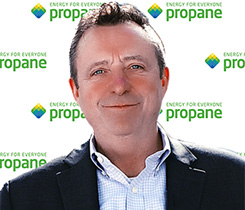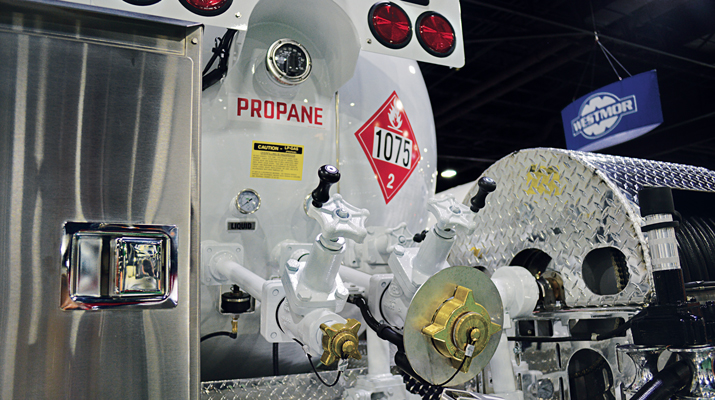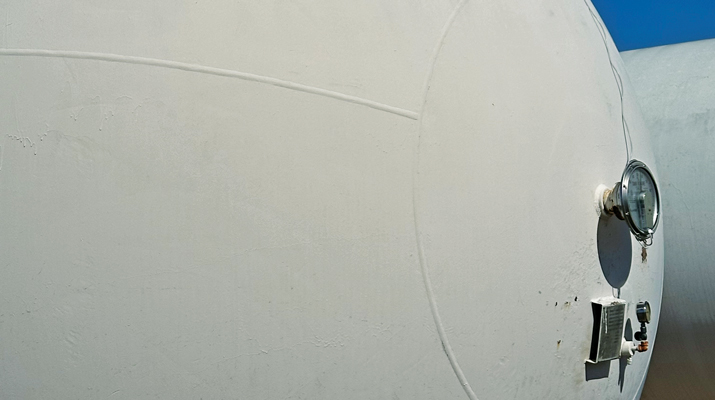Tank-ownership policy critical part of safety, loss-control success
The topics of filling non-owned tanks, tank ownership and unauthorized product transfer have been in the news and on the dockets for legislative change.
Some states have considered and passed legislation that spells out concerns regarding safety and the filling of competitor-owned tanks. On the other hand, some consumer groups question whether container laws are hard on the consumer.
There are major safety concerns about marketers who hook up and pump gas into competitor-owned tanks. There are also legitimate business concerns about their failure to respect tank-ownership boundaries, violations of customer agreements and unauthorized product transfer.
A gas company should have safety concerns when a competitor fills its tank. Tank ownership involves a significant amount of responsibility and liability.
Unauthorized filling, product transfer or work on propane systems including appliance removal could impact consumer safety. It is extremely important that a well trained, qualified and, in some states, licensed professional perform the installation and facilitate the safe delivery of product.
A well-trained driver will inspect the tank for corrosion, location, tipping and/or sources of ignition added within 10 feet, such as a newly installed air conditioning compressor. There are many other safety considerations. If the system is out of gas, the driver also will make sure a leak check is performed prior to returning the system to service. There are no guarantees that a third party filling the tank will follow proper procedure and safely return the system to service.
If the tank is customer owned, the customer can choose who fills it. However, it is recommended that they contract with a reputable supplier to assist with code and safety issues.
Tanks are expensive and economics is also an issue. A new 500-gallon tank costs the marketer about $1,200, plus installation costs. Some gas companies include the tank with a supply agreement and some charge a monthly tank lease fee to recoup their investment. The consumer could pay up to $3,000 to have a new tank properly installed on a one-customer basis.
Accident statistics indicate that untrained consumers and unauthorized parties “meddling” with gas-fired equipment, propane storage and distribution systems are a major cause of propane accidents nationwide. Future insurance premiums will be based upon a propane marketer’s ability to control exposures at customer locations. This includes addressing tank ownership safety issues.
If something goes wrong after a third-party, non-owned fill or improper product transfer, you can bet the company that owns the installation will be named in a lawsuit or subrogation claim. The Ghent, W.Va., incident is an example of a third party transferring product from a non-owned tank.
I have one client who will not supply a customer if the gas company doesn’t own the tank. With new customers who own their tanks, the gas company buys the tank and establishes a supply contract. It performs a Gas System Check and documents a clean installation. The marketer claims it secures the relationship with his customer and documents customer safety concerns. Legally, spelling such issues out in contractual form is always a best safety practice.
What is your company procedure regarding communicating with non-owned tank customers or the refilling of your tanks by a competitor? Are your customers clear about their obligations? Is it spelled out in their supply contract?
Any future proposed state or federal legislation regarding supply and tank ownership should include your safety input on these matters. Your company policy regarding tank ownership will be a critical part of your safety and loss-control success.
Jay Johnston (www.thesafetyleader.com) is a proactive insurance agent, business consultant, safety writer and inspirational speaker. Jay can be reached at Jay@thesafetyleader.com or 952-935-5350.
















